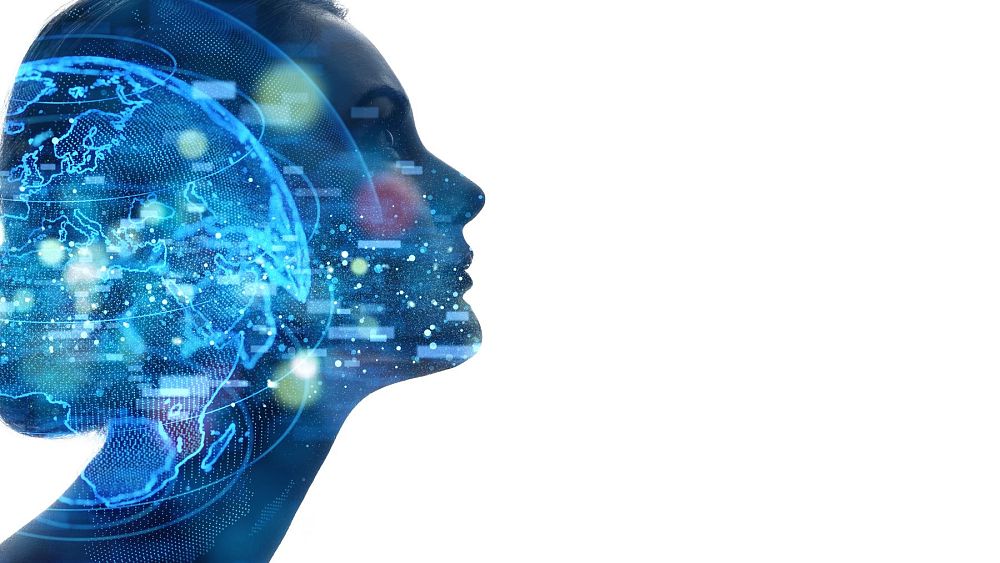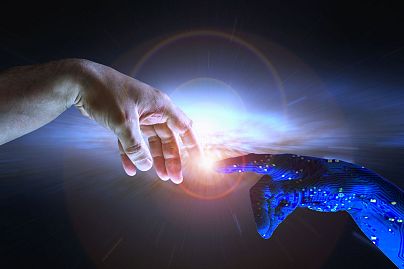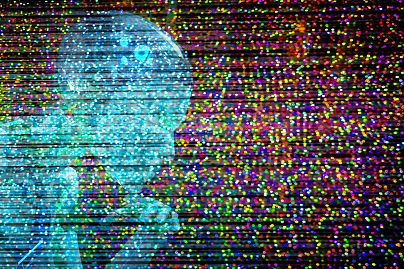
Artificial intelligence got creative in 2022, generating impressive text, videos and pictures from scratch. It is also our top tech prediction for 2023. But aside from being a source of fascination, it is also one of fear.
Beyond writing essays and creating images, AI will affect every industry from banking to health care but it is not without its biases, which can prove harmful.
This is how AI may evolve in 2023 and what to watch out for.
Chatbots and competition
At the beginning of 2022, OpenAI launched DALL-E 2, a deep-learning technology that produces images from typed instructions. Google and Meta then launched AI that can produce video from text prompts.
Just a few weeks ago, OpenAI launched ChatGPT 3, which catapulted onto the scene to produce eloquent and well-researched text at the command of a short text description.
Now, the next thing to follow, which could be out in 2023, is of course an upgrade: GPT-4. Like its predecessor, it is rumoured to be able to translate into other languages, summarise and generate text and answer questions, and include a chatbot.
It will also reportedly have 1 trillion parameters, which means it would produce more accurate responses even faster.
But Elon Musk, one of the early creators of OpenAI, has already criticised ChatGPT for refusing to answer questions on specific subjects, such as the environment, because of how it has been programmed.
Another thing to watch out for in 2023 is just how other tech giants will respond to the competition.
Google’s management issued a “code red” when ChatGPT 3 launched over concerns about how it would impact Google’s search engine, according to the New York Times.
AI in business and taking on the world’s problems
But AI also has the potential to play a role in the fight against climate change as it can help companies make decisions on sustainability and slashing carbon emissions much more easily.

“This technology can help companies and governments address this challenge and make the world a better place for us from an environmental standpoint,” said Ana Paula Assis, IBM’s General Manager for EMEA.
She told Euronews Next that AI enables faster decision-making, which is especially needed with an ageing population as it “puts a lot of pressure on the skills and capabilities that we can have in the market”.
Assis said this is why the application of AI for automation has now become “urgent and imperative”.
But AI will not just transform business. It can also help doctors make a diagnosis as it groups data together to compute symptoms.
It can even help you with banking and loans.
Ana Paula Assis
IBM
Credit Mutuel in France has adopted AI to support their client advisors to provide better and quicker responses to clients. Meanwhile, NatWest in the United Kingdom is helping its customers make better-informed decisions about mortgages.
Demand for AI in companies has already increased in 2022 and looks set to grow.
IBM research shows that between the first and second quarter of 2022, there was an increase of 259 per cent of job postings in the AI domain, said Assis.
AI and ethics
As the technology is expected to develop in 2023, so are the deeper questions behind the ethics of AI.
While AI can help reduce the impact of human bias it can also make the problem much worse.
Amazon, for example, stopped using a hiring algorithm after it was found to favour applications that used words such as “captured” or “educated” – words that were found to be used more on male resumes.
Meanwhile, ChatGPT will not allow you to write a racist blog post, saying it is “not capable of generating offensive or harmful content”. But it could if you asked it in another way that tiptoes around the subject.

This biased or harmful and racist content is possible because AI is trained on hundreds of billions of words and sources that are taken from websites and social media.
Another way AI can perpetuate bias is through systems that make decisions based on past training data, such as biased human decisions or historical and social inequalities. This can also be due to gaps in the data that is available, for example, face recognition systems that may have taken samplings mostly from white men.
The responsibility of a fairer and unharmful AI, therefore, lies not only on the AI companies creating the tools, but also on the companies that use the technology.
IBM research shows 74 per cent of companies surveyed said they still do not have all the capabilities necessary to ensure the data used to train the AI systems is not biased.
Another issue is a lack of tools and frameworks to provide companies with the ability to explain and be transparent about how the algorithms work.
“These are really the embedding capabilities that we need to see companies performing in order to provide a fairer, more secure, more safe usage of artificial intelligence,” Assis said.









Leave a Reply